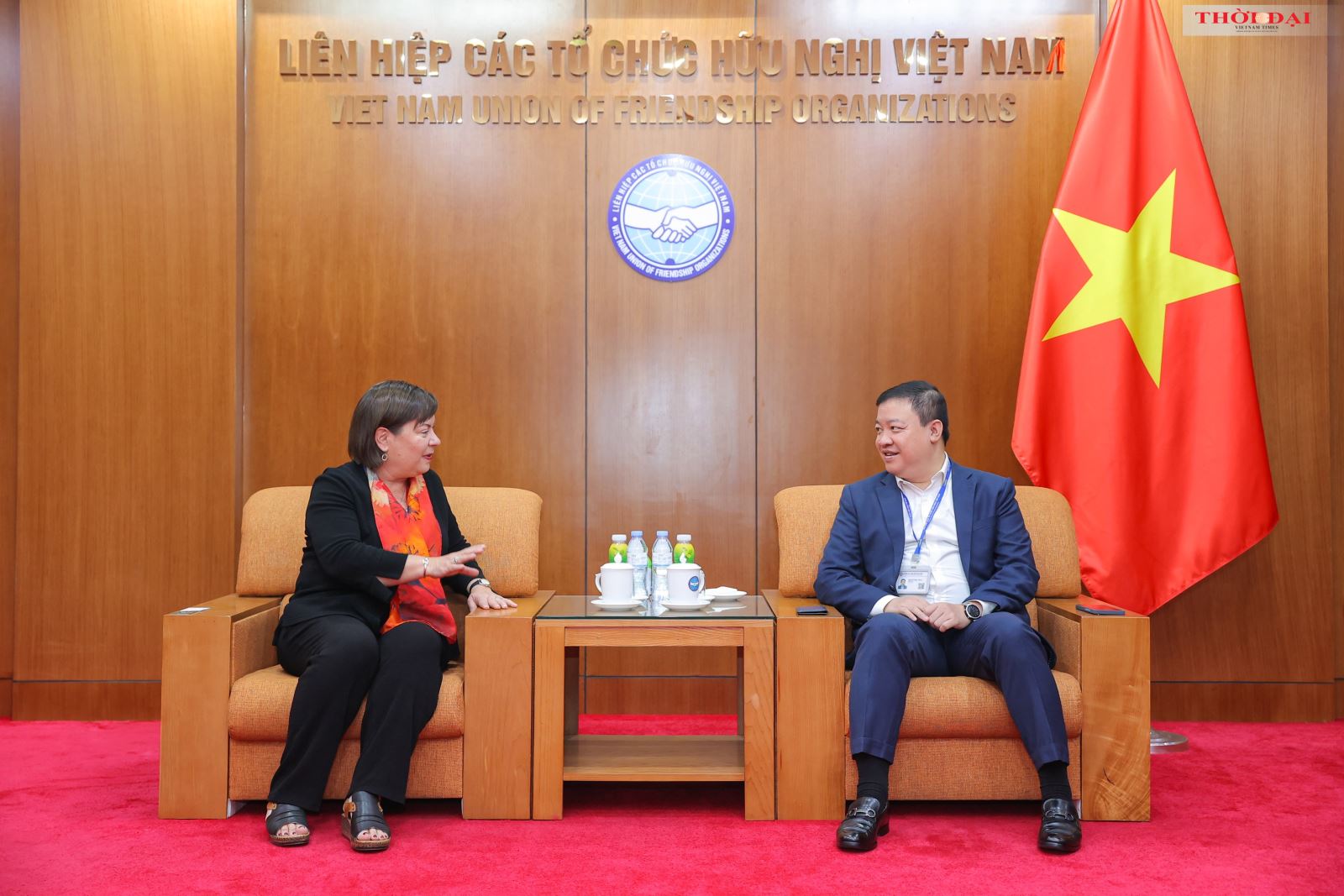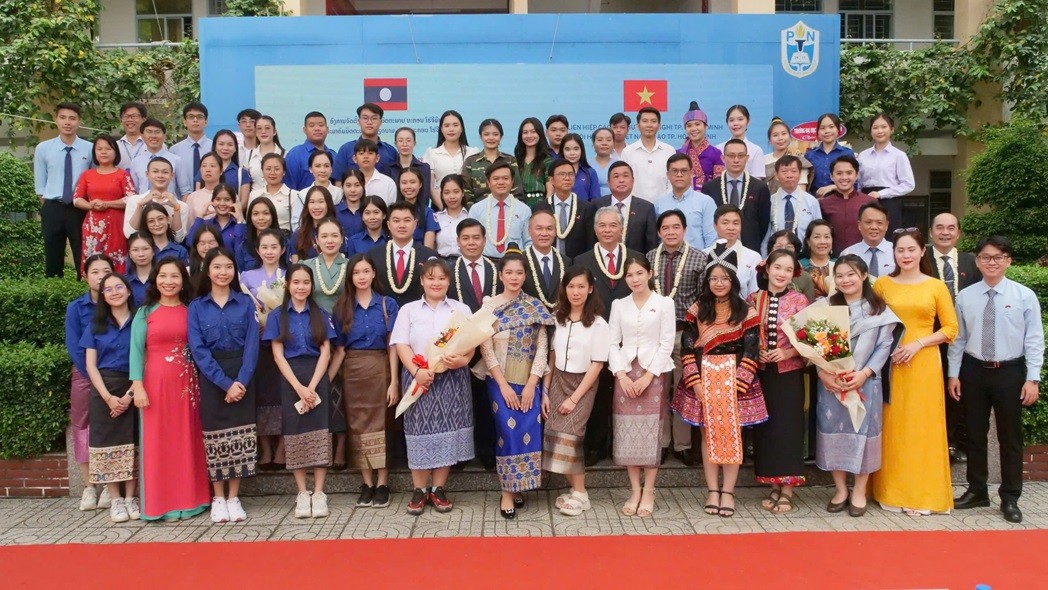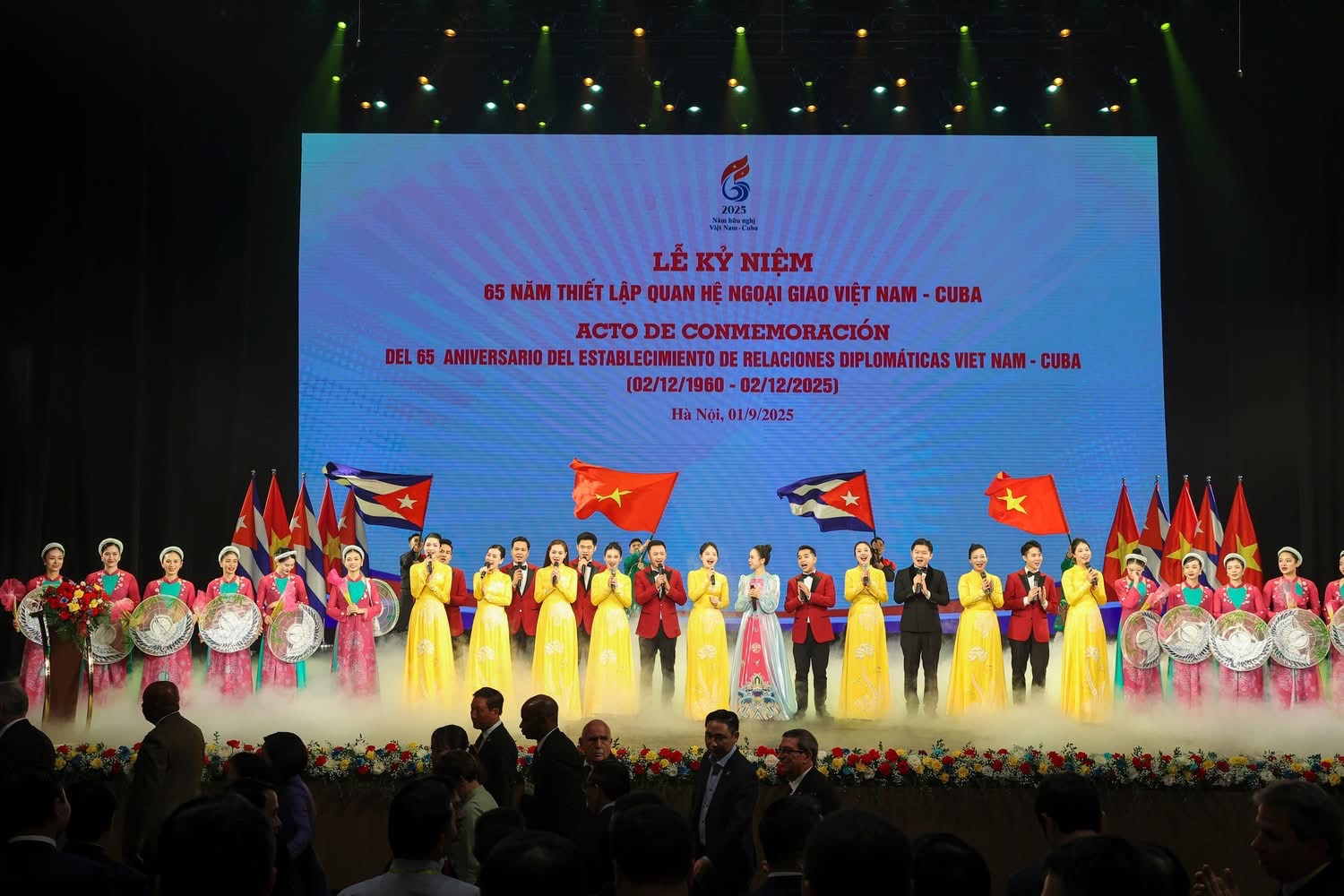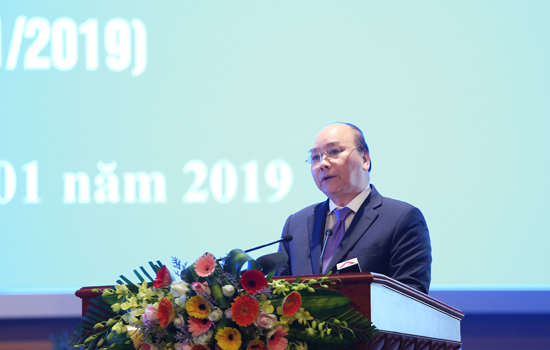
PM Nguyen Xuan Phuc and his Cambodian counterpart, Hun Sen, inspect the guard of honour during the reception for the guest in Hanoi on December 6. (Photo: VGP)
This is the first official visit to Vietnam by PM Hun Sen since Cambodia set up its sixth-tenure Government in September, on the threshold of the 40th anniversary of the victory over the genocidal Khmer Rouge regime (January 7, 1979 - 2019).
The visit is taking place in the context of Vietnam – Cambodia relations witnessing great development. Vietnamese people congratulated Cambodians on their achievements under reign of King Norodom Sihamoni and leadership of the Royal Government. In particular, the country successfully held theelection of the sixth National Assembly (NA) with a high voter turnout, which showed the voters' confidence in the country's future development. The ruling Cambodian People’s Party (CPP) won the majority of votes in this general election.
Cambodia’s security, political and social situation is stable; meanwhile its economy reaches a high growth with an average GDP growth rate of 7% per year. Agriculture, textiles, tourism and construction are the main pillars. The country’s external relations have been strengthened and expanded.
We are happy to see that experiencing the ups and downs of history the peoples of the two countries have gone through thick and thin together, cooperated and helped one another for the cause of national liberation and construction in each country. This particular tradition of solidarity has become a common, invaluable and sacred asset of the two nations that needs to be preserved and promoted by the two peoples.
Over the past years, the two sides have regularly exchanged high-level delegations to promote long-standing friendship and comprehensive cooperation in a deeper, more efficient and reliable manner.
The two PMs met to exchange issues related to bilateral cooperation on the sidelines of international conferences such as the second Mekong-Lancang Cooperation (MLC) Summit in Phnom Penh in January as well as the sixth Greater Mekong Subregion (GMS-6) Summit and the 10th Cambodia-Laos-Vietnam Development Triangle Summit (CLV-10 in Hanoi in March. The two sides also held the 16th meeting of the Vietnam-Cambodia Joint Committee on Economic, Cultural and Scientific-Technological Cooperation; signed several new cooperative agreements and inaugurated the radio stations funded by Vietnam in Cambodian provinces.
Cooperation in the fields of economics, trade and investment have been increasingly developed. Bilateral trade reached US$3.8 billion in 2017, a year-on-year increase of 30%. Vietnam has now 206 investment projects in Cambodia with a total registered capital of US$3.02 billion, being among the fifth largest foreign investors in Cambodia. The business and investment activities of Vietnamese enterprises in Cambodia have been highly valued by its leaders, significantly contributing to social welfare and development of the host country. Cambodia’s investment in Vietnam has seen growth with 18 projects worth a total US$58.125 million so far.
Cooperation in border management between Vietnam and Cambodia has been fostered. The two countries have maintained joint patrols, timely exchange information and coordinate each other to handle arising issues. Both sides are striving to complete the demarcation of their land border in the shortest time possible to build a borderline of peace, stability, friendship, cooperation and sustainable development.
Cooperation between relevant ministries, branches and localities of the two countries has also been promoted. Vietnam and Cambodia coordinated closely in regional and international cooperation frameworks such as the United Nations, ASEAN, ASEM, the Greater Mekong Sub-region and the Cambodia-Laos-Vietnam Development Triangle.
PM Hun Sen’s official visit to Vietnam is an important political event, affirming determination of leaders and people of both countries to further strengthen Vietnam – Cambodia in a deep, stable and sustainable manner. The visit also aims to develop the two countries’ relations of “good neighbourliness, traditional friendship and comprehensive, sustainable and long-term cooperation” to a new height, for the benefit of two peoples as well as for peace, stability, cooperation and development in the region and the world.
VNF










